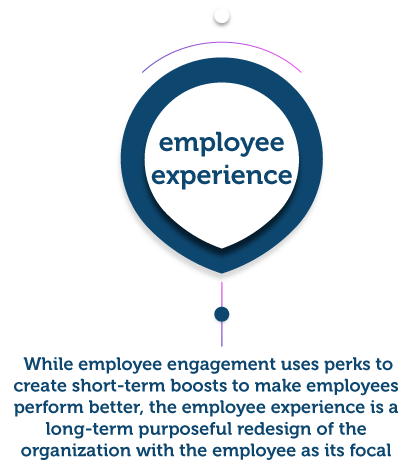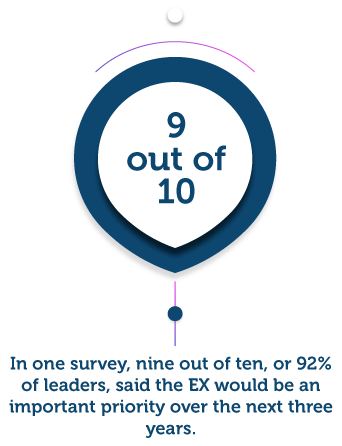
6 HR Strategies For Improving Employee Engagement
Transform your workplace with HR strategies designed to boost employee engagement, drive productivity and job satisfaction, and foster a culture of growth and success.


Head of People at PhotoAiD

RegexSEO
The nature of work has dramatically changed in the last couple of years. Employees constantly have to learn new skills, adopt new working models, and embrace the latest technology and software. While some workers thrive under this increasing pressure, many employees feel a great sense of disruption and struggle to accept the rapidly changing work conditions.
The “Great Resignation” exodus was a clear signal that employees were burnt out and questioning the value of work as the concept of “work-life” has taken on a new meaning. As a result, how workers experience the workplace has become critical for organizational performance and success.
Now, more than ever, companies need to address employees’ needs and redesign the workplace to create an excellent and rewarding employee experience (EX).
Contrary to what many assume, employee experience is not the same as employee engagement. While employee engagement uses perks to create short-term boosts to make employees perform better, the employee experience is a long-term purposeful redesign of the organization with the employee as its focal point.
So, you might be wondering what does it mean?
There is no clear definition as the EX has different meanings for different organizations. EX considers employees’ values, needs, and expectations and aims to shape the workplace into a positive experience during the entire employee lifecycle.
In other words, all of the interactions inside the workplace: with technology, the workspace, relationships within the workplace, opportunities for growth, and development contribute to the overall experience.

The notion that employees only care about compensation is false. More than anything, employees today want to feel a powerful sense of belonging and purpose.
Several factors contribute to designing a positive employee experience:
While it is helpful to list these areas as separate factors, the people’s experience demands a holistic strategy. Employees need an integrated experience that considers their overall emotional, physical, professional, and financial well-being from hire to exit.
Organizations need to reinforce the desired message through all high-level touchpoints of the employee experience – Employee Value Propositions, onboarding, learning and development, and performance management.
The interest in EX has grown a lot over the years.
In one survey, nine out of ten, or 92% of leaders, said the EX would be an important priority over the next three years. Forward-thinking companies are already expanding their HR departments to include an Employee Experience Manager role.
There are several reasons for the increasing attention to employee experience that can be explained through different trends:

Business owners have long embraced giving their customers top-notch service, as the customer experience (CX) directly impacts their bottom line.
Just as customer-centric organizations care so much about the experience they provide to clients, nowadays, companies aim to design a meaningful experience and change employees’ perception of work. Studies show that positive employee experience is linked to better work performance and more effort.
Companies gain their competitive edge by attracting and retaining highly skilled and well-trained workers in today’s knowledge-based economy.
By investing in their employee experience (EX), companies stand apart from the competition through strong company branding, allowing them to attract the best talent. Not only that, job seekers can look up companies that are ranked on an EX Index before deciding to join an organization.
In addition, employees with low EX scores are more than twice as likely to want to leave than those with positive experiences. A world-class employee experience creates valuable brand ambassadors, increasing the likelihood of getting recommended to other highly talented individuals, aiding the organization’s talent acquisition efforts.
Therefore, investing in employee experience is synonymous with investing in the growth and success of your business.
Any organization, regardless of its size, industry, or culture, should desire to optimize the experience of its people. The question on many leaders‘ minds is how to succeed in achieving a positive experience. While the employee experience is too vast and ever-changing to be completely managed and controlled, the following practices nurture a positive culture.
Management and leadership play an influential role in setting the tone and direction of an organization, including setting the foundations of a positive EX. Managers provide a high level of clarity about the direction of the organization, its purpose, and values and align employees with the organizational goals.
Managers also play a critical role in providing a high level of personalized support to their employees in their day-to-day operations. Identifying and developing great managers is a must for creating a positive work environment. Provide them with management training to improve their performance and positively impact employees.
Open and honest communication is the key to any relationship. As such, they are providing timely and continuous feedback will boost the company’s ability to grow and innovate.
Maciej Kubiak, Head of People at PhotoAiD, highlighted the need for establishing proper communication channels with your employees as part of the EX. He stated, “In a survey conducted by Deloitte, almost 80 percent of executives rated employee experience as very important, so we have decided to make it a top priority in our company.
To this end, we take care to provide constant feedback. In PhotoAiD’s HR department, we believe it is essential to create spaces for feedback where positive points can be discussed, and the work of each employee and the management of leaders and managers can be improved. Safe spaces where people speak frankly, within the limits of respect, and reach agreements for improvement.”
Giving rewards, incentives, and gifts cultivates a culture that puts the employee first and acknowledges their contributions. Every stage in the employee’s life cycle should be seen as an opportunity to create a positive experience.
Maciej Kubiak shared their approach to designing an employee-centric culture by stating,

Technology makes up a big part of the overall employee experience as it enables employees to work effortlessly and without friction. Today, employees expect to be equipped with the best tools available to do their jobs. From the automation of mundane tasks to collaborative tools and communication channels, technology has the potential to improve the overall experience in the workplace significantly.
Companies can get insight into employee sentiment, provide personalized development opportunities, and support employees at scale with the right technology, AI, and analytics tools. As a result, many organizations are leveraging advanced software systems to enhance the EX digitally and make data actionable.
The factor that most heavily impacts and can damage employees’ perception of their workplace is a lack of a good work-life balance. The EX is not shaped just by the experiences at work, but it is also about how much work affects employees’ lives when they are not at work.
Some factors that contribute to a positive work environment are:
Workers want a flexible working environment that supports their wellness and allows them to thrive outside of work.
Supporting your employees’ development and providing them with resources and opportunities shows that you are committed to their individual professional growth.
Providing employees with a sense of purpose and growth in the organization will solidify their intent to stay. When employees know where their efforts will take them, have a clear career path, they become more confident about their future inside the organization.
This sentiment was shared by Dmitrii Kustov at RegexSEO. He stated, “At our company, we take a personalized approach to developing marketing strategies for our clients and career and professional plans for our employees.
Not only for the comfort of our employees but also to increase productivity and individual development of each, we analyze and redistribute tasks. The idea is that everyone should do only those things that one is good at. That way, people enjoy their work and complete tasks more efficiently.”
To foster a positive work experience, we have the following actionable recommendations:
It is constantly changing each day, so your strategy will need to evolve along with the needs and concerns of your employees.
The daily experiences of employees are a powerful indicator of the success of your organization – the more you invest in them, the more they invest in your organization. The path to sustained competitive advantage and improved business performance is achievable only once you put your people at the center of your organization and design a positive employee experience.
Browse our curated list of vendors to find the best solution for your needs.
Subscribe to our newsletter for the latest trends, expert tips, and workplace insights!

Transform your workplace with HR strategies designed to boost employee engagement, drive productivity and job satisfaction, and foster a culture of growth and success.

Unlock the potential of corporate social responsibility (CSR) to inspire and motivate your employees. Discover strategies that align purpose with profit, creating a workplace driven by shared values and meaningful impact.

Discover the path to becoming a proficient learning and development professional with expert tips and actionable insights.

Discover how effective employee engagement drives productivity, retention, and profitability. Learn proven strategies to build a happier, more engaged workforce.
Used by most of the top employee benefits consultants in the US, Shortlister is where you can find, research and select HR and benefits vendors for your clients.
Shortlister helps you reach your ideal prospects. Claim your free account to control your message and receive employer, consultant and health plan leads.